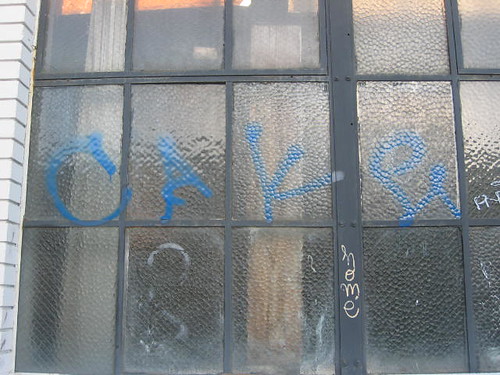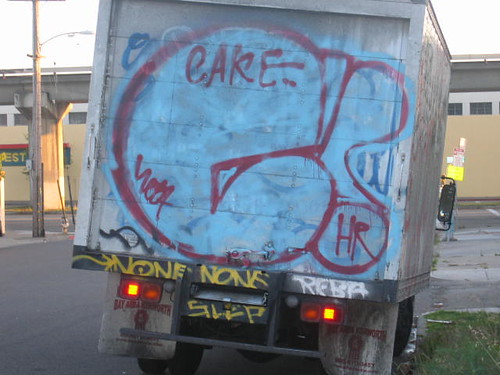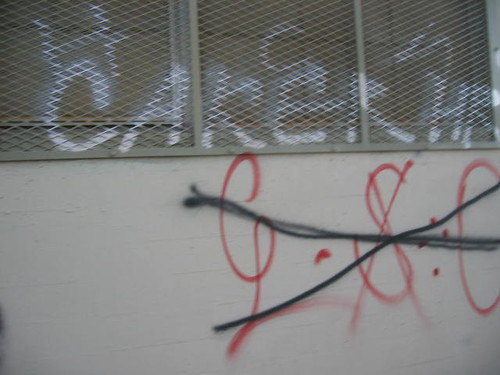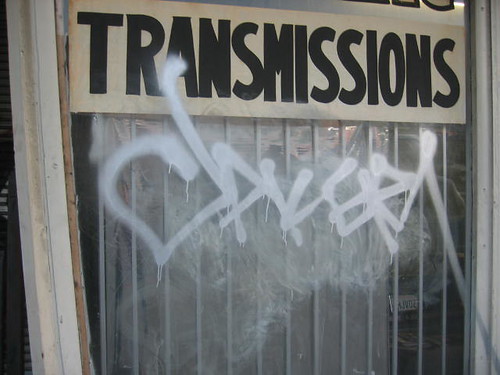


(I used to live on a farm).
I say that I don't like fruit, but this is not the case. For years I've naturally gravitated toward a locally-grown fruit policy: I don't eat much fruit because most fruit, when you live in the Northeast, tastes like crap most of the time. I have always adored a few things: cherries, Maine blueberries, raspberries and apples. Apples I'm very particular about. They're more of a memory-fruit, a ritual. My mother always made apple pie (and she still does, but she does not make her crust). Every year we'd go picking, which when you're little is an excuse to climb apple trees and when you're big is an excuse to act little. It was only in college when I worked at an orchard that I really got to figure out what kind of apples I prefer, and now I'm loyal to a fault. I'll make do with Cortlands for eating or baking but it's Northern Spy that I prefer, both for the poetics of its name and for the reserved beauty of its delicate colors. Pale pink meets spring green. Winesaps are a different breed, small and dark and painful to the teeth on first crunch.
The other thing my fruit farmers taught me well were plums. They'd been a confusing fruit, sometimes bitter and sometimes sweet, and I think I feel about the plum how most people feel about the peach. There's something deliciously sexy about its juiciness, its softness and its earnest nature. I tried long ones and skinny ones, small ones and red ones and blue ones, and I never learned the name of the plum I liked best, but they're small, blue-ish and matte.
While plucking peach leaves at work this weekend I made a resolution to go deep with stone fruit this summer. I'm going to try everything Farmer Al puts out until I understand peaches, nectarines and pears the way I understand apples. I'm going to go slow, and I'm going to be thorough. It may require lots more trips to the Berkeley Bowl (currently I've got Santa Rosa plums and Blenheim apricots in house). I'm going to take fruit apart. Give me a hammer and I'll crack open pits, make noyau ice cream. The peach leaves are frozen, cooked down into simple syrup, infused for custard, but what else? What next?
The knowledge I want may not come this summer, and that is okay. But it's going to start and it's an education that's long overdue. I don't really know fruit. While I follow the incorrect crisp recipes at work and come out with watery, weird cherry crisp, the guys eyeball tapioca flour by the handful and get rock-hard crisp. It's all ratios, baking. AP or cornstarch or tapioca. I asked my boss what to read, because she'd know. She makes jams and crisps and puff-pastry-filled concoctions, and she was vague. How do you transfer a lifetime of knowledge? How do you give someone what your hands have learned? How can you teach them to go by sight, instinct, educated guess? She suggested I read the pie bible. So yes, we'll hit up the library this week and take a walk around Lake Merritt (hit up bakesale betty's or ici or cafe fanny while we're running around, perhaps).
There are cultures and yeasty concoctions brewing around the cupcakery this week. Lavash ferment for crackers I'm baking tomorrow. I started the ferment Friday with some bread flour and water, today we added honey and prepared the dough, and after a long slow rise in the walk-in tonight she should be good to bake tomorrow with some malden salt and pepper. There's also a sourdough starter we're working on with raisin water, and cake flour (for now, till we get something with more gluten).
Michael Ruhlman has some great things to say about bread in "The Making of a Chef." I miss bread. Most of my fellow bakers at the cupcakery are disinterested. They'd rather decorate cake. Bread is so calming. Reliable. Sexy, if you know what you're doing. Bread responds to the weather, the air, the hiss of steam or water in a hot oven. Bread is about controlling your variables and adjusting for time. I love the ritual of kneading, waiting for first rise, shaping. Patience. I miss the sour smell of yeast and the feel of risen dough, the way it turns under your hands as you ball it. I love how the dough responds to my bread knife (I love that knife) when it's scored. I may be in the pleasure business but bread's practical, economic, never expensive.
I wrote a story about bread as ritual. It's in need of a redraft, but as it stands:
Eleven o’clock that night Leti banged on the door to my room. She showed me her bread, which was lumpy, misshapen and rock hard. I rapped it with my finger, and the crust tore into my skin. "Um, nice," I said. "I’ve got to get up early, though, just make sure you clean the kitchen before you go to bed, si?"
"It’s awful," Leti said. "I followed everything Henry told me. This looks like shit." Leti’s eyes threatened to overflow with tears. She wanted my friends to like her, she said.
"I want to have something for the party, you know, something nice. Everything’s so nice up here." She gestured with her hands at the air around us. "Your apartment, she added, your job, your friends, you have such a nice life, Junior," she continued. "Dios mio, be happy with it!"
"I see how you look at him," she said. "Your Will. I know how you feel, baby, I’m sorry."
I told her I’d need to take some of her sourdough starter. Will was not fair game for conversation. "I’ll take it to Stephanie." Stephanie was Abeille’s patissier and her breads were legendary. "Let me take the bread, too. I’ll help you fix it."
I didn’t want to help Leti, not at all. I wanted my house back and I wanted my friend back and I wanted a man in my bed.
"There’s something I want to tell you, about Ramon," Leti said. The no-good.
My capacity for compassion was exhausted, and I told Leti to save it. I shut the door on Leti and tossed her ugly bread on my dresser.
.jpg)

















No comments:
Post a Comment